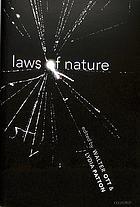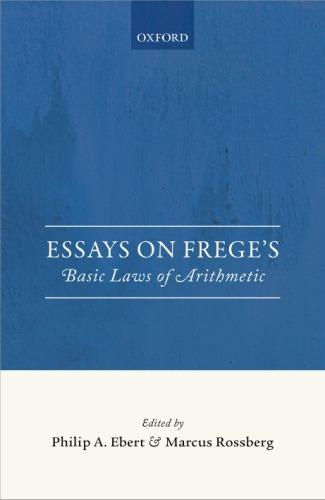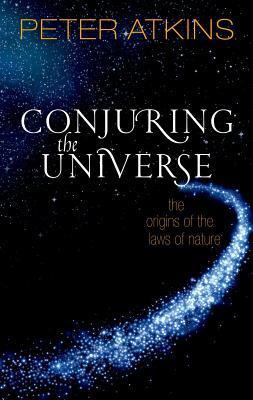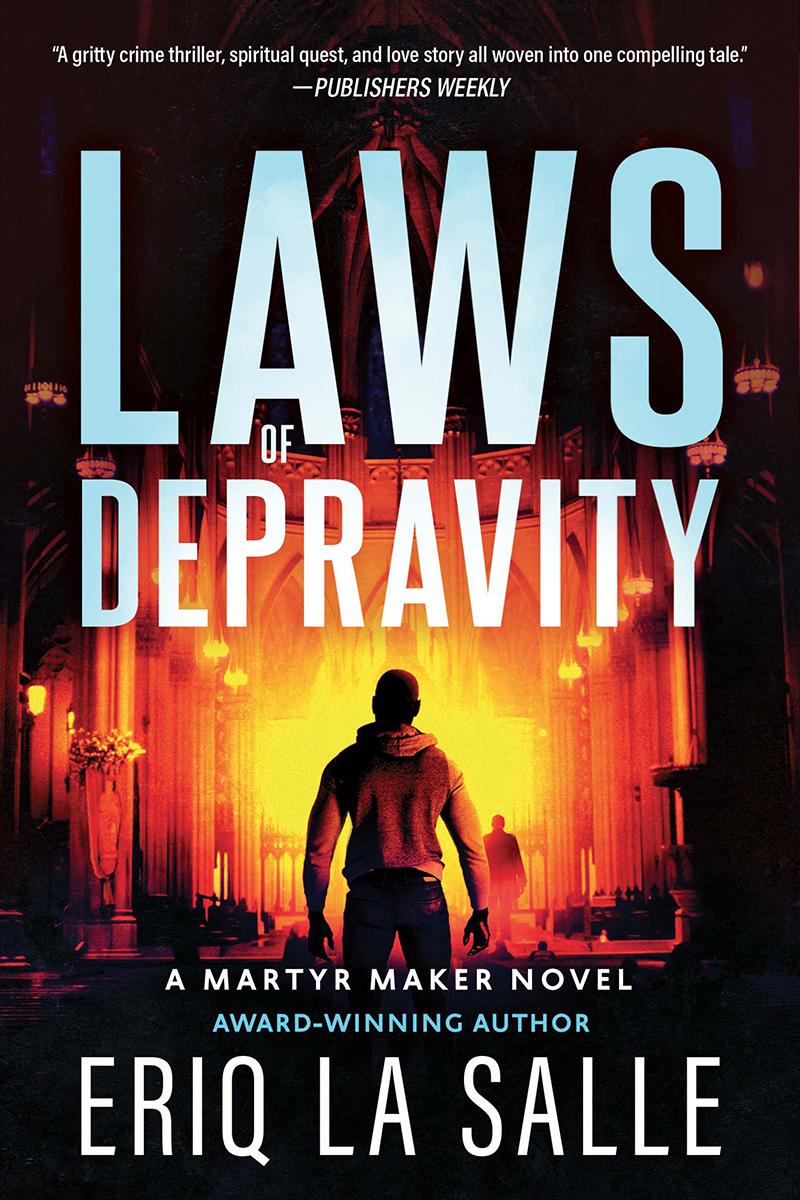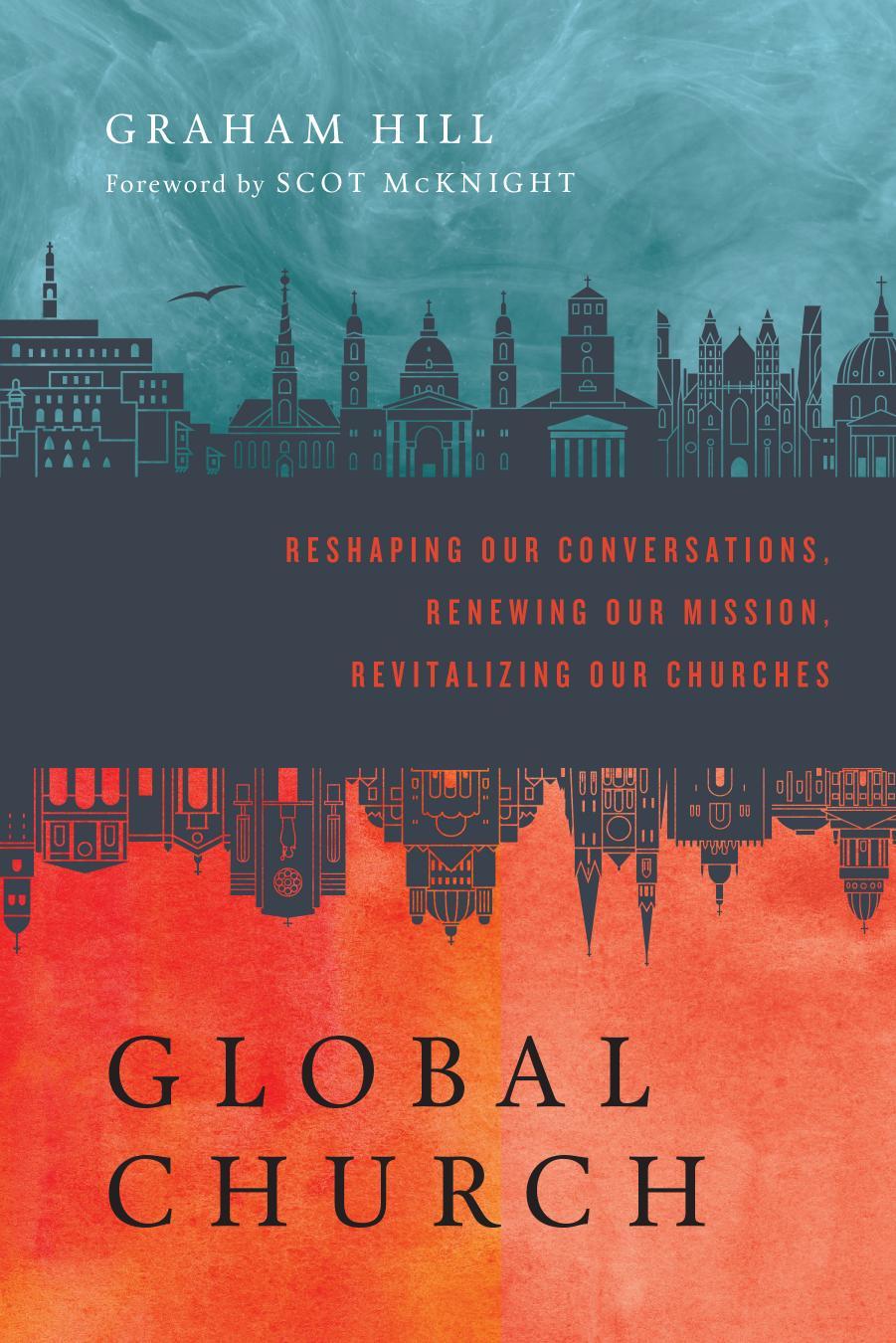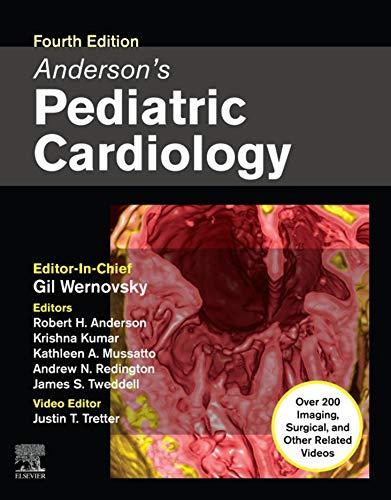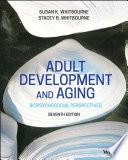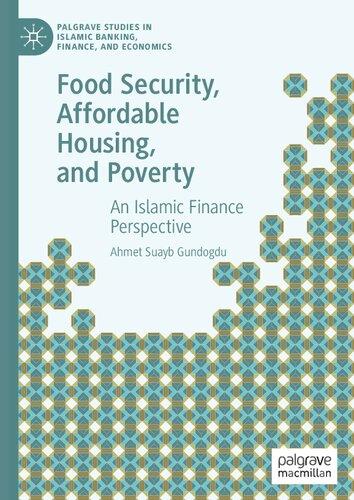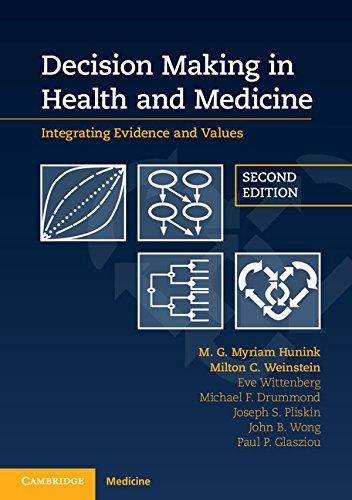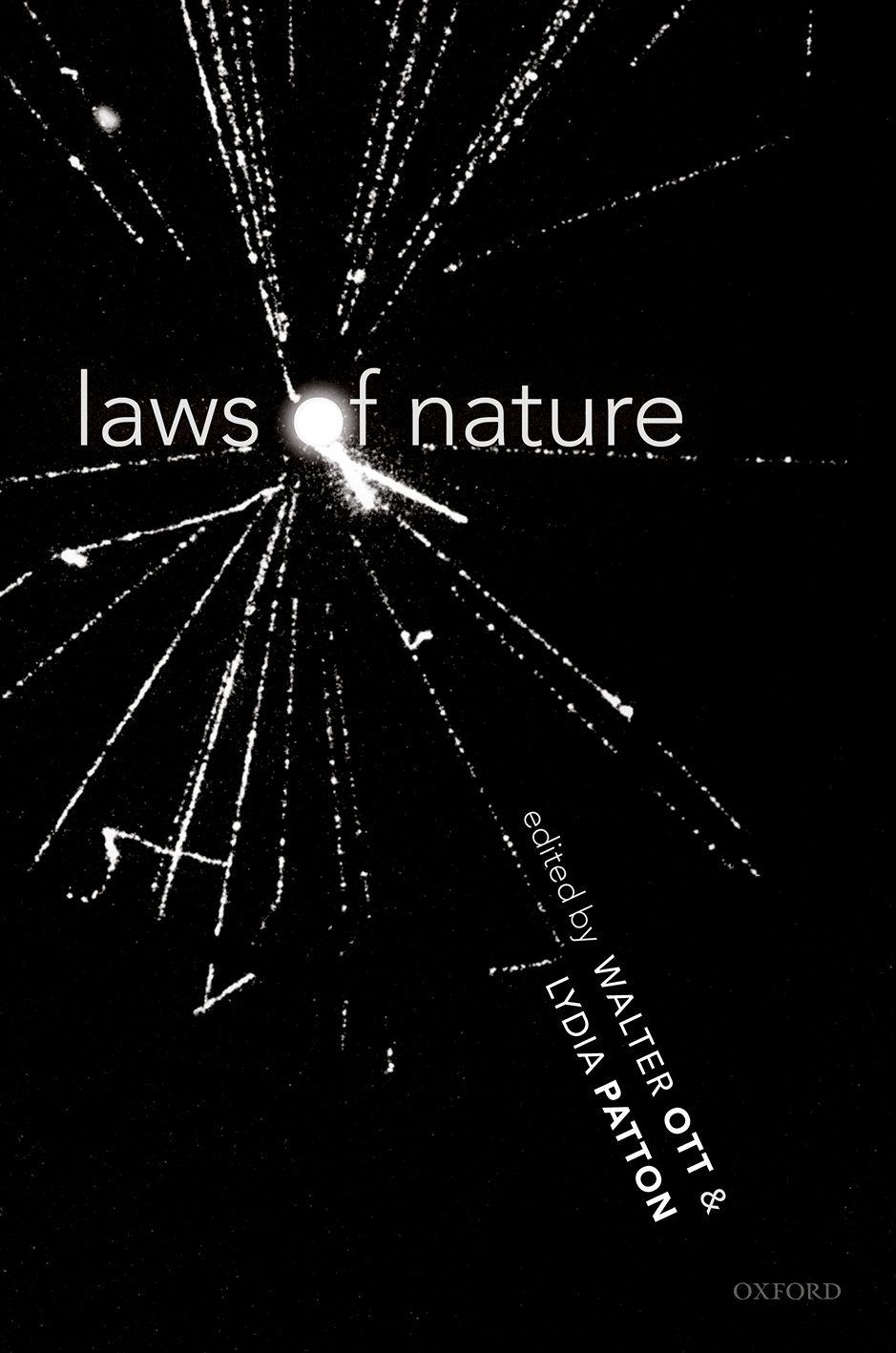https://ebookmass.com/product/laws-of-nature-first-edition-
Instant digital products (PDF, ePub, MOBI) ready for you
Download now and discover formats that fit your needs...
Essays on Frege’s : basic laws of arithmetic First Edition. Edition Ebert
https://ebookmass.com/product/essays-on-freges-basic-laws-ofarithmetic-first-edition-edition-ebert/
ebookmass.com
Conjuring the Universe: The Origins of the Laws of Nature
Peter Atkins
https://ebookmass.com/product/conjuring-the-universe-the-origins-ofthe-laws-of-nature-peter-atkins/
ebookmass.com
Laws of Depravity 1st Edition Eriq La Salle
https://ebookmass.com/product/laws-of-depravity-1st-edition-eriq-lasalle/
ebookmass.com
Digging Up Love With The Sheriff: A Sweet Spring Kisses Series Book Sterling
https://ebookmass.com/product/digging-up-love-with-the-sheriff-asweet-spring-kisses-series-book-sterling-2/
ebookmass.com
GlobalChurch: Reshaping Our Conversations, Renewing Our Mission, Revitalizing Our Churches Graham Hill
https://ebookmass.com/product/globalchurch-reshaping-ourconversations-renewing-our-mission-revitalizing-our-churches-grahamhill/ ebookmass.com
Andersonu2019s Pediatric Cardiology E Book 4th Edition, (Ebook PDF)
https://ebookmass.com/product/andersons-pediatric-cardiology-ebook-4th-edition-ebook-pdf/ ebookmass.com
I Heard What You Said Jeffrey Boakye
https://ebookmass.com/product/i-heard-what-you-said-jeffrey-boakye/
ebookmass.com
ADULT DEVELOPMENT & AGING: Biopsychosocial Perspectives 7th Edition Susan Krauss Whitbourne
https://ebookmass.com/product/adult-development-aging-biopsychosocialperspectives-7th-edition-susan-krauss-whitbourne/
ebookmass.com
Food Security, Affordable Housing, and Poverty: An Islamic Finance Perspective Ahmet Suayb Gundogdu
https://ebookmass.com/product/food-security-affordable-housing-andpoverty-an-islamic-finance-perspective-ahmet-suayb-gundogdu/
ebookmass.com
Decision Making in Health and Medicine: Integrating Evidence and Values 2nd Edition – Ebook PDF Version
https://ebookmass.com/product/decision-making-in-health-and-medicineintegrating-evidence-and-values-2nd-edition-ebook-pdf-version/
ebookmass.com
LawsofNature LawsofNature EDITEDBY
WalterOttandLydiaPatton
GreatClarendonStreet,Oxford,OX26DP, UnitedKingdom
OxfordUniversityPressisadepartmentoftheUniversityofOxford. ItfurtherstheUniversity’sobjectiveofexcellenceinresearch,scholarship, andeducationbypublishingworldwide.Oxfordisaregisteredtrademarkof OxfordUniversityPressintheUKandincertainothercountries
©theseveralcontributors2018
Themoralrightsoftheauthorshavebeenasserted
FirstEditionpublishedin2018
Impression:1
Allrightsreserved.Nopartofthispublicationmaybereproduced,storedin aretrievalsystem,ortransmitted,inanyformorbyanymeans,withoutthe priorpermissioninwritingofOxfordUniversityPress,orasexpresslypermitted bylaw,bylicenceorundertermsagreedwiththeappropriatereprographics rightsorganization.Enquiriesconcerningreproductionoutsidethescopeofthe aboveshouldbesenttotheRightsDepartment,OxfordUniversityPress,atthe addressabove
Youmustnotcirculatethisworkinanyotherform andyoumustimposethissameconditiononanyacquirer
PublishedintheUnitedStatesofAmericabyOxfordUniversityPress 198MadisonAvenue,NewYork,NY10016,UnitedStatesofAmerica
BritishLibraryCataloguinginPublicationData
Dataavailable
LibraryofCongressControlNumber:2017961506
ISBN978–0–19–874677–5
Printedandboundby
CPIGroup(UK)Ltd,Croydon,CR04YY
LinkstothirdpartywebsitesareprovidedbyOxfordingoodfaithand forinformationonly.Oxforddisclaimsanyresponsibilityforthematerials containedinanythirdpartywebsitereferencedinthiswork.
Acknowledgments vii ListofContributors ix
1.IntuitionsandAssumptionsintheDebateoverLawsofNature1
WalterOttandLydiaPatton
2.EarlyModernRootsofthePhilosophicalConceptofaLawofNature18 HelenHattab
3.LawsofNatureandtheDivineOrderofThings:DescartesandNewton onTruthinNaturalPhilosophy42
MaryDomski
4. Legessivenatura:Bacon,Spinoza,andaForgottenConceptofLaw62
WalterOtt
5.LawsandPowersinthe FrameofNature 80 StathisPsillos
6.LawsandIdealUnity108 AngelaBreitenbach
7.BecomingHumean122
JohnW.Carroll
8.A Perspectivalist BetterBestSystemAccountofLawhood139 MichelaMassimi
9.Laws:AnInvariance-BasedAccount158 JamesWoodward
10.HowtheExplanationsofNaturalLawsMakeSomeReducible PhysicalPropertiesNaturalandExplanatorilyPowerful181 MarcLange
11.LawsandTheirExceptions205 StephenMumford
12.AreLawsofNatureConsistentwithContingency?221
NancyCartwrightandPedroMerlussi
Bibliography 245 Index 263
Acknowledgments TheeditorswouldliketothankJimDarcyoftheUniversityofVirginiaforhisexpert andcarefulworkinassemblingthebibliographyandstandardizingthereferences. ManythankstoAudraJensonofVirginiaTechforpreparingtheindex.
WeareparticularlygratefultoPeterMomtchiloffofOxfordUniversityPressfor hisguidanceandencouragement.ThankstoGayathriManoharan,whomanagedthe project,tothePress’scopyeditor,DawnPreston,toChrisBessantforanexpert roundofproofreading,andtotheproductionanddesignteamatOxford.
WewouldalsoliketothankthemembersofWalter’sgraduateseminaronlawsof natureattheUniversityofVirginiainthespringof2016:NazimAdakli,JimDarcy, TorranceFung,LilyGreenway,KirraHyde,andMasonPilcher.Somecontributors graciouslyagreedtoallowtheseminartoreadtheirpapers.Thegraduatestudents’ thoughtscontributedtoourcommentstothoseauthors.Mostofall,weareindebted tothedistinguishedcontributorsthemselves.
ListofContributors A NGELA B REITENBACH UniversityLecturerandFellowofKing’sCollege,University ofCambridge
J OHN W.C ARROLL ProfessorofPhilosophy,NorthCarolinaStateUniversity
N ANCY C ARTWRIGHT ProfessorofPhilosophy,DurhamUniversityandUniversityof California,SanDiego
M ARY D OMSKI AssociateProfessorofPhilosophy,UniversityofNewMexico
H ELEN H ATTAB AssociateProfessorofPhilosophy,UniversityofHouston
M ARC L ANGE ProfessorofPhilosophy,UniversityofNorthCarolina,ChapelHill
M ICHELA M ASSIMI ProfessorofPhilosophyofScience,UniversityofEdinburgh
P EDRO M ERLUSSI ResearchStudent,DurhamUniversity
S TEPHEN M UMFORD ProfessorofMetaphysicsatDurhamUniversityandProfessorII atNorwegianUniversityofLifeSciences
W ALTER O TT ProfessorofPhilosophy,UniversityofVirginia
L YDIA P ATTON AssociateProfessorofPhilosophy,VirginiaTech
S TATHIS P SILLOS ProfessorofPhilosophyofScienceandMetaphysics,Universityof Athens
J AMES W OODWARD DistinguishedProfessorofHistoryandPhilosophyofScience, UniversityofPittsburgh
1 IntuitionsandAssumptionsin theDebateoverLawsofNature WalterOttandLydiaPatton
Fewconceptsareasmalleableasthatofalawofnature.Untiltheseventeenthcentury, thephrasewastypicallyarhetoricaldeviceforlaudingtheapparentorderlinessofthe non-humanworld.¹St.ThomasAquinas,forexample,remarksthat ‘ifweweretoenter awell-orderedhouse,wewouldgatherfromtheordermanifestedinthehousethe notionofagovernor.’²Theorderlyarrangementofobjectsandtheirpowersisa testamenttothewisdomandbenevolenceofacreator.AsAquinasgoesontosay, ‘theverynotionofgovernmentofthingsinGod,theruleroftheuniverse,hasthenature ofalaw.’³Inthisusage,itdoesn’tmakesensetospeakofindividuallaws,suchasthelaw ofinertia.Noristhereanyprospectofinvestigatingnaturetodiscoverthelawsitobeys.
Thatpre-moderntalkoflawsshouldbetoothlessinthiswaymakessense,once oneconsiderstheorthodoxviewthatformsitsbackdrop,atleastintheWestduring themedievalandlatemedievalperiods.Veryroughly,thedominantpositionholds thatthecourseofeventsisdeterminedbythepowersthatbodieshave.Foralltheir disagreements,philosopherssuchasAristotle,Aquinas,andSuárezallholdaversion ofthisview.Totrytoputtalkoflawstoanyexplanatoryorpredictiveusewouldbeto haveonethoughttoomany:thereisalreadyametaphysicalstructureinplacethat underwritestheseepistemicpractices,anditappealsonlytopowers.⁴
Thenotionofalawofnature firstgetssomethinglikeitscurrentsenseinthe seventeenthcentury,intheworkofRenéDescartes.Ina1630lettertoMarinMersenne, Descartesclaimsthat
¹Fortheoriginoftheconceptofalawofnature,seeesp.J.E.Ruby(1986),JohnMilton(1998),Friedrich Steinle(2002),andSophieRoux(2011),aswellasthechaptersbyHelenHattabandStathisPsillosinthisvolume.
² SummaTheologicae (henceforth ‘ST’)Iq.103a.1,inAquinas(1945).
³STIq.91a.1.
⁴ Weareofcourseexaggeratingthedegreetowhichphilosophersoverthisvastspanoftimebelongedto aunifiedorthodoxy.Still,someofthemostcommonlycitedheterodoxthinkers suchasNicholasof AutrecourtandIbnAl-Ghazali strikeusasbeingchieflyconcernedwiththeepistemologyofpowers ratherthanthemetaphysics.
[t]hemathematicaltruthswhichyoucalleternalhavebeenlaiddownbyGodanddepend onhimentirelynolessthantherestofhisc reatures.Indeedtosaythatthesetruths areindependentofGodistotalkofhimasif hewereJupiterorSaturnandtosubject himtotheStyxandtheFates.Pleasedonothesitatetoassertandproclaimeverywhere thatitisGodwhohaslaiddowntheselawsinnaturejustasakinglaysdownlawsin hiskingdom. ⁵
AlthoughDescartesisherespeakingofthetruthsofmathematics,heextendshis claimtophysicsinthe PrinciplesofPhilosophy,asweshallsee.Fornow,thecrucial pointisthatDescartes’sGodstandsoutsideofthenaturehislawsaretogovern. UnliketheAristotelians,Descartesdoesnotthinkthatnaturedeterminesitsown course.Ithastobedirectedfromwithout.
ThisisthechiefinnovationDescartes’sappropriationof ‘law’ talkisdesignedto achieve.FormanyAristotelians,Godplaystheroleofkingrulingovernature,but onlyinamediateway.Ontheirview,Godfunctionsasthe firstandprimarycauseof allevents,inthatGodisthesourceofallbeing.Butcreaturesneverthelesshavetheir ownpowers,whichfunctionassecondarycauses.AsAquinasputsmatters, ‘[t]he wholeeffectproceedsfrom[bothGodandthenaturalagent],yetindifferentways, justasthewholeofoneandthesameeffectisascribedtotheinstrument,andagain thewholeisascribedtotheprincipalagent.’⁶ ForSuárezasforAquinas,Godgetsto decidewhathappensonlyinthesensethatheisresponsibleforcreatingbodiesand concurringwiththeirpowers.⁷
ForDescartes,bycontrast,Goddirectlydeterminesthecourseofevents,and ‘laysdown’ a ‘law’ thatisnot fixedbythenatureoftheobjectsthat ‘obey ’ it. Descartesbendsthescholasticframeworkofprimaryandsecondarycausestohis novelends.Inthe Principles,heclaimsthat,althoughGodistheuniversaland primarycause,thelawsofnatureare ‘thesecondaryandparticularcausesofthe variousmotionsweseeinparticularbodies.’⁸ Onthescholasticview,secondary causesareneededtodiversifythebeingthatGodcreates.Godcreatesand preservesthings,buttheirprecisenaturesareduetothesecondarycausesthat unfoldovertime.ThatagivencatexistsatallisduetoGod’sprovidingitwith being;butthatitexistsasacatandnotasamouseoradoorstopisduetothe powersandhencenaturesofthecreatedbeingsthatconspiredtogiveitbirth. Cartesiansecondarycausesplaythesamerole:withoutthem,God’seffectswould
⁵ ATI145/CSMIII23.ReferencestoDescartesaretotheCottingham,Stoothoff,andMurdoch translation(CSM)andtoAdamandTannery’seditionofDescartes’swork(AT).
⁶ SummaContraGentiles inAquinas(1945,vol.ii,130).Inthesamework,Aquinasexplainsthat ‘The orderofeffectsisaccordingtotheorderofcauses.Nowthe firstofalleffectsisbeing,forallothersare determinationsofbeing.Thereforebeingisthepropereffectofthe firstagent,andallotheragentsproduce itbythepowerofthe firstagent.Furthermoresecondaryagentswhich,asitwere,particularizeand determinetheactionofthe firstagent,produce,astheirpropereffects,theotherperfectionswhich determinebeing’ (1945,vol.ii,119).
⁷ ForSuárez,seeesp. MetaphysicalDisputation 19,1inSuárez(1994,281–2).
⁸ ATVIIIA62/CSMI240.
remainundifferentiated. ⁹ Butwhatplaysthisroleisnotabodywithapowerofits own;itisalaw.
Descartes ’sinnovationopensuptheconceptualspaceneededtoinvestigate particular,determinatelawsthatcanbeexpressedmathematically.Itwouldbe hardtoexaggeratewhatadeparturethisisfromthescholasticmodelofscientifi c investigationwhich,forallitsvariationsandinnovationsoverthecenturies, remainedlargelyyokedtothemodelofexplanationbyclassificationintermsof powersandnaturalkinds.
Philosopher-scientistssuchasRobertBoylecomplainthattheCartesianconcept of lexnaturalis ismerelymetaphorical: ‘tospeakproperly,a law beingbuta notional ruleofactingaccordingtothedeclaredwillofasuperior ,itisplainthatnothingbutan intellectualbeingcanbeproperlycapableofreceivingandactingbya law. ’¹⁰ Andyet evenBoylehimselfwassoonusingthephrase.
Boyle’spredicamentishardlyunusual.Fromthestart,nearlyeveryonewhobothers toreflectmuchontheconceptrecognizesitasalegal-cum-theologicalmetaphorthat needstobecashedout.Thismakesthetopicimportantlydifferentfromother philosophicalnotionssuchasresponsibilityorjustice.Inthosecases,itdoesseem thatpre-theoreticalcommitmentsandbeliefsshapeoursubsequentreasoning,andput constraintsonthekindsofconclusionswearewillingtodraw.Suchisnotthecase,we believe,withtheideaofalawofnature.Thatisahighlyartificialnotionintroducedby Descartestoplayaveryspecificroleinhisphilosophyofphysicsandtheology.Later thinkerswillofcoursebendthenotiontotheirownpurposes.
Iftheconceptofalawofnatureisartificialinthisway,wemustbecarefulhow weproceed.Inthinkingaboutmoralresponsibility,forexample,itmakessenseto weighandsiftthroughourintuitionsandaimforaviewthatachievesthemaximal degreeofreflectiveequilibrium.Onetriestopreservethestrongestintuitionsand achievesomekindofcoherenceamongthem.Butwhenourintuitionsandassumptionsarehistoricallyconditionedinthewaywebelievenomologicalcommitments are,thisprocedureisdubious.Wemust firstbecomeawareoftheprovenanceofour intuitions:aretheygenuineinsights,ortherelicsofatheologicalworldview?Are theyanartifactof(possiblyoutmoded)scientificpractices,orsimplytheresultof focusingonanarrowsetofexamplesofsuchpractices?
Thischapteraimstosiftthroughtheintuitionsthathaveguidedthedebateover lawsofnature.Itwouldbeafallacy,ofcourse,toassumethatanintuition’soriginin anoutmodedtheoryorworldviewisamarkagainstit.Rather,ourpointisthatonly byconductingsuchagenealogycanweseethattheseintuitionsarenotpermanent andnecessaryfeaturesofeveryone ’sconceptionsoftheworld.Theydonotautomaticallydeserveaplaceinourtheorizingaboutlaws;eachmustliveordieonits ownmerits.WebeginwiththeguidingintuitionofDescartes’sfoundingaccount, thatlawsgovernevents.
⁹ ForadifferentreadingofDescartesonsecondarycauses,seeHelenHattab(2000)and(2007).
¹⁰‘AFreeInquiryintotheVulgarlyReceivedNotionofNature,’ inBoyle(1991,181).
1.LawsGovern Thatlawsinsomesense ‘ govern ’ theeventstheyareaboutisafeatureoftheearliest modernuseofthephrase.ForDescartes, fixingtheparticularfactsthatmakeupwhat DavidLewiscallsthe ‘Humeanmosaic ’ doesnot fixthelawsofnature.Evenmore broadly:nothingabouttheworldofextension,nottheessencesofthingsinitorthe powersofbodies,canbeusedtoderivethelawsofnature.Thisisbecausethoselaws havetheirsource,notinthecreatedworld,butinGod:asDescartesputsitinthe PrinciplesofPhilosophy, ‘[f]romGod’simmutabilitywecan ...knowcertainlawsor rulesofnature,whicharethesecondaryandparticularcausesofthevariousmotions weseeinparticularbodies. ’¹¹Wecancallthisthe ‘top-down ’ view:lawsareimposed, asitwere,fromabove.
Thetop-downviewhasimmediateconsequencesforcausation:thereisnowayfor bodiestohavegenuinecausalpowers.¹²In1678,RalphCudworthmakesthe argumentexplicitwhenheattacks ‘thosemechanicTheists ’ who affecttoconcerntheDeityaslittleasispossibleinmundaneaffairs,eitherforfearofdebasing him,andbringinghimdowntotoomeanoffices,orelseofsubjectinghimtosolicitous encumberment;andforthatcausewouldhaveGodtocontributenothingmoretothe mundanesystemandeconomy,thanonlythe firstimpressingofacertainquantityofmotion uponthematter,andtheafterconservingit,accordingtosomegenerallaws;thesemen,Isay, seemnotverywelltounderstandthemselvesinthis.Forasmuchastheymustofnecessity, eithersupposethesetheirlawsofmotionexecutethemselves,orelsebeforcedperpetuallyto concerntheDeityintheimmediatemotionofeveryatomofmatterthroughouttheuniverse,inordertotheexecutionandobservationofthem.Theformerofwhichbeingathing plainlyabsurdandridiculous,andthelatter,thatwhichthesephilosophersthemselvesare extremelyabhorrentfrom,wecannotmakeanyotherconclusionthanthis,thattheydobut unskilfullyandunawaresestablishthatverything,whichinwordstheyoppose[i.e.,the hypothesisofaplasticnature].¹³
TheproblemCudworthisolatesisthis:thereisnowayforGodtodecreeorsetdown alawofnaturewithoutprovidingthemeansforitsenforcement.Lawscannot ‘executethemselves.’ Anyonewhowantstoretainthetop-downview,Cudworth argues,facesachoice:eitherratchetupthecapacitiesofmerematter,soitcaninfact understandandobeyGod’slaws,orinvolveGodineverycausaltransaction.
Althoughitseemsnotjustsurprisingbutcomicalfromourperspective,Cudworth choosesthe firstoption.His ‘plasticknature’ isasortof ‘deputyGod’¹⁴ whoputsthe lawsintoaction. ‘Nature,’ Cudworthwrites, ‘isartasitwereincorporatedandembodied inmatter,whichdothnotactuponitfromwithoutmechanically,butfromwithin vitallyandmagically.’¹⁵
¹¹ATVIIIA62/CSMI240.¹²ThisargumentismadeatgreaterlengthinOtt(2009),ch.9. ¹³Cudworth(1837,vol.1,213–14).¹⁴ ThephraseisJesseph’s(2005).
¹⁵ Cudworth(1837,vol.1,220).
SuchaviewisofcourseanathematoCartesianmechanists,whoattributeonlysize, shape,andmotiontobodies.ForDescarteshimself,itseemsfairlyclearthathis conceptionoflawsandbodiesleadstoatleastakindoflimitedoccasionalism. Although finitemindsmightbecauses,wherebodiesareconcerned,Godisthe onlycause.¹⁶ HowelsecouldthelawsofnaturefollowfromGod’snatureandwill?As Cudworthargues,itisnotasifthelaws,oncedecreed,attainakindofindependent existenceandcanmarchabouttheuniversedirectingthetrafficofbodies.Hencetopdownvisionsoflawsinthemodernperiodaretiedtooccasionalism.
Althoughtop-downviewshavetheiroriginsintheism,theyofcourseappearinthe twentiethcenturyinasecularcontext.Whethertheycansurvivethetransplant remainstobeseen.Letusconsiderbrieflythemostprominenttop-downviewin thelastfortyyears,whichwasindependentlydevisedbyFredDretske,Michael Tooley,andDavidArmstrong.Onthe ‘DTA’ view,lawsarerelationsamonguniversals.TosaythatitisalawthatFsarefollowedbyGsistosaythattheinstantiationof FnomicallynecessitatestheinstantiationofG,orraisestheprobabilityofsuchan instantiation.¹⁷ AsArmstrongputsit,thenecessitationrelationis ‘likeaninferencein nature.’¹⁸ Thisviewrejectstheclaimthatthelawsare fixedbytheaggregateoflocal mattersoffactandyettriestoavoidboththeismandanimism.
AkeyquestionhereisjustwhatDTA’snomicnecessitationamountsto.Itisnot logicalnecessitation,sincedefendersofDTAwanttomaintainthecontingencyofthe laws.Insomeworlds,N(F,G)holds,andinothers,itdoesn’t.Itmightnotholdeven inaworldwhereFsarealwayscoupledwithGs.Armstrongclaimsthatwehaveto admitthis suigeneris notion ‘inthespiritofnaturalpiety.’¹⁹ ForDTA’sHumean opponents,thewellofsuchpietyrunsdryatthispoint.Foronemightwonder whetherthereisn’tsomethingpurelystipulativeaboutassigningthenecessitation relationtouniversalsone findsconstantlyconjoined. Thoseattractedtotop-downviewshaveanotheroption:non-reductivism. Perhapsthewholeprojectofcashingoutthelegal-cum-theologicalmetaphoris ill-conceived.²⁰ IsaacNewtonfamouslyrefusestospeculate(inprint,atleast)onthe ultimatesourceorunderpinningoflawsofnature.²¹Perhapsthereisnosuchsource; totrytounderstandlawsasaspectsofGod’swillorasnecessitationrelationsamong universalsistotrytoanalyzeaprimitive.Althoughnotwithoutitsattractions,this viewseemstorequireonetoadoptastrangeontologicalstance.Weareatonceasked
¹⁶ Thisclaimishighlycontroversial;foradefense,seeGarber(1993)andOtt(2009).Foradifferenttake onDescartes’sconceptoflaw,seeHelenHattab’schapterinthisvolume.Otherrelevantliteratureiscited inHattab’schapter.
¹⁷ SeeArmstrong(1983,88).¹⁸ Armstrong(1997,232).
¹⁹ Armstrong(1983,92).Forfurthercriticismalongtheselines,seeesp.BarryLoewer(2004,196f.).
²⁰ JohnCarroll(1994)defendsanon-reductiveview,asdoesJamesWoodward,inhisownway(this volume).Section3ofCarroll’schapterforthisvolumeexploresthequestionofwhetherlawsgovern. ²¹SeeNewton(2004,63f.).FormoreonNewton’smethod,seeesp.Smith(2002)andStein(1990),as wellasthechaptersbyMaryDomskiandStathisPsillosinthisvolume.
toadmitlawsintoourontologyandprohibitedfromaskingjustwheretheycan fit. Iftheyarenotrelationsamonguniversals,whatarethey?Andhowcantheymakeit necessary,inwhateversense,thatnaturetakethecourseitdoes?
Weemphasizethequestionhowtounderstandnomicnecessitationbecauseitgets totheheartofthetop-downview.Alltop-downviewshaveitthatthelawsare actuallydoingsomething.Iflawsaredivinevolitions,thenitiseasytoseehowthis works:God,beingomnipotent,formsvolitionsthatarenecessarilyeffective.Itis muchlesseasytoseehowlawscouldgovernanythingonnon-theistictop-down views:whatdoesitmeantosay,forexample,thatoneuniversalnecessitatesthe instantiationofanother?Itisstillhardertoconceivehowlawscouldbeground- floor elementsofourontology, floatingfreeofthebodiesthat ‘obey’ them.Intheend,itis hardtoescapethesuspicionthatthegoverningintuitionisaholdoverfromtheageof theism.²²Ifweresistthatintuition,oneofthechiefmotivationsforthetop-down viewfallsaway.
2.LawsExplain Thatlawsgovernisonlyoneintuitivesourceofsupportforthetop-downview. Anothersuchintuition,forDescartesasmuchasforDTA,istheperhapsmore deeplyfeltintuitionthatlawsexplaintheirinstances.Incomingtoknowalaw,one comestoknowmorethanthepartsofthemosaicthelawgoverns:oneknows why the mosaicisasitis.Withoutgoverninglaws,thereisnoobviouswayinwhichthelaws canexplaintheirinstances.²³Hereagain,itseemstousthatwhatwehaveisnota timelessinsightbutahistoricallyconditionedandindeedshiftingcriterion.Partof whatexplainsthatshiftisachangeinepistemicambitionandadesiretopurge naturalphilosophyofitsdependenceontheology.
Thekey figuresinthemoderndebateoverexplanationareGeorgeBerkeleyand DavidHume.AlthoughHumeislessexplicitthanonewouldlike,histreatmentof causationprovidesaconvenientstartingpoint.OnoneofHume’sdefinitionsofthe term,acauseis ‘[a]nobject,precedentandcontiguoustoanother,andwhereallthe objectsresemblingtheformerareplac’dinlikerelationsofprecedencyandcontiguitytothoseobjects,thatresemblethelatter.’²⁴ Thissuggeststhatalawofnaturewill
²²ThisistheviewdefendedinOtt(2009).Othersareboundtohavehadthesamegeneralsuspicion.
²³ThisisapointonwhichArmstronglaysconsiderableweight;seehis(1983,chs.2–5)andLoewer’ s response(2004).
²⁴ ATreatiseofHumanNature BookI,PartI,section14,inHume1739–40/2000,114.Correspondingly,Humedefinesnecessity ‘intwoways,conformabletothetwodefinitionsof cause,ofwhichitmakes anessentialpart.Iplaceiteitherintheconstantunionandconjunctionoflikeobjects,orintheinferenceof themindfromtheonetotheother’ (BookII,PartIII,section2,inHume1739–40/2000,263).Itis importantnottobemisledbyHume’sglossonthe firstdefinitionofcauseinthe Enquiry.There,hesays thatacauseissuchthat ‘ifthe firstobjecthadnotbeen,thesecondneverhadexisted’ (section7inHume 1748/2006,146).DavidLewis(1973,556–7)andPeterMenzies(2014)construethisasacounterfactual analysisofcausation.Thiswouldbedisastrous,sincecounterfactualdependenceisneitherequivalentto,
simplybeastatementofaregularity.Thelawdoesnotgovernanything;itmerely summarizeswhathappens.
Acrudeidentificationoflawswithregularitiesquicklyrunsintotrouble.For example,somelawsarestatedintermsofidealconditionsanddonotdescribeany regularitiesatall.Arguably,thelawofgravitydoesn’tsummarizeregularitiessimply becauseitignorestheoperationofotherforcesthatarealwayspresenttosomedegree.²⁵ Conversely,therearelotsofregularities nightfollowingday,forinstance thatnoone wouldwanttocountamongthelaws.Finally,itseemsobtusetoexplainagiveneventby simplypointingtoalloftheothereventsthataresimilar.Regularitiesdonotexplain; theyarethethingstobeexplained.
Foramoresophisticatedview,weneedtobackupslightlyandconsiderGeorge Berkeley’spositionin DeMotu.²⁶ FarmorethanHume,Berkeleywassensitivetothe actualpracticesofthescientistsofhisday.ForBerkeley,scienceisnotengagedin trackingcausesatall,norarelawsstatementsofcausalrelations.AsBerkeleyputsit, itisnot ‘infactthebusinessofphysicsormechanicstoestablishefficientcauses,but onlytherulesofimpulsionsorattractions,and,inaword,thelawsofmotions,and fromtheestablishedlawstoassignthesolution,nottheefficientcause,ofparticular phenomena.’²⁷ Theserulesneednotberegularities.Newton’slaws,forinstance,need notsummarizeindividualeventsthatactuallyhappen.Instead,theycanbeprinciples ortheoremsthat,whetheraloneorincombination,allowonetodeducethecourse ofevents.Toexplainaneventisnottoplaceitinaseriesofregularities.Instead, ‘[a]thingcanbesaidtobeexplainedmechanicallythenindeedwhenitisreduced tothosemostsimpleanduniversalprinciples,andshownbyaccuratereasoningtobe inagreementandconnectionwiththem.’²⁸
HenceDavidLewis’scontemporary ‘Humeanism’ wouldbebettertermed ‘Berkeleyanism. ’ OnLewis’sview,asonHume’sandBerkeley’s,thereisnogenuine mind-independentnecessityknittingtogetherevents,ortheuniversalsthat figure inthem(asDTAwouldhaveit).ButitisBerkeley,notHume,whoidentifieslaws asgeneralstatementsthatplayaroleinscientificpractice.Andthisisthekeymove inLewis’stheory.
Ifwesupposethatthereis,orwillbe,asingledeductivesystemthatbestdescribes theworld,thenLewiscandefinealawasa ‘regularity[thatis]atheoremofthebest system.’²⁹ Aswe’vejustseen,theHumeanisprobablybetteroffnotmakinglawsa subsetofregularitiesatallbutsimplytreatingthemasthetheoremsofthebest nordoesitfollowfrom,constantconjunction.AnneJaapJacobson(1986)hasshownthatthisisnot Hume’smeaning;inHume’sEnglish,hisclaimreallyisarestatementoftheconstantconjunction definitionandnotacounterfactualclaimatall.
²⁵ NancyCartwrightfamouslymakesthispointin(Cartwright1980).
²⁶ SeePsillos(2002)forasophisticatedcontemporaryversionoftheregularitytheory.
²⁷ DeMotu section35inBerkeley(1721/1975,218).
²⁸ DeMotu section37inBerkeley(1721/1975,218).²⁹ SeeLewis(1994,478).
system.BarryLoewer,forexample,pointsoutthatLewis’ssystemcanaccommodate vacuouslaws,whichareregularitiesonlyinaPickwickiansense.³ ⁰
LewisgoeswellbeyondBerkeleyinexploitingthemetaphysicsofpossibleworlds. Andthisallowshimtorecapturesomeaspectsoftheintuitionthatlawsaresources ofexplanation.Considerthecloselyrelatedissueofcounterfactualsupport:ifthelaw thatFsareGssupportsthecounterfactual ‘hadxbeenF,itwouldalsohavebeenG,’ there is alegitimatesenseinwhichitsbeingalawthatFsareGsexplainstheactual distributionofFsandGsinthemosaic.
Defendersofthetop-downviewwillobjectthatmereregularitiesdonotsupport counterfactuals:thefactthateveryoneinthisroomiswearingshoeshardlysuggests thatifabarefootpersonwerehere,shoeswouldmagicallyappearonherfeet.³¹Butif lawsarenotregularities(orstatementsofthem)butinsteadtheoremsofthebest system,thenwecanreclaimthesupportofcounterfactuals.Anynearbyworldwillby definitionbeoneinwhichthelawshold,andhenceanynearbyworldinwhichFa is oneinwhichGa aswell.Assumingatruth-functionalaccountofconditionals,this letsussaythathad a beenF,itwouldalsohavebeenG.Now,theanti-Humeanisstill freetocomplainthatthisisnot genuine supportofthecounterfactual.Thereissurely somethingbizarre,perhapsquestionbegging,aboutassumingthattheclosestpossibleworldsshareourlawsofnatureononehandandcollapsingthoselawsinto sophisticatedsummariesofeventsontheother.
ManyattacksonLewis-styleviewshaveexactlythatstructure,arguingthat Lewisian ‘explanation’ and ‘counterfactualsupport’ aremerecounterfeitsandnot thegenuinearticles.³²Itisworthwondering,though,whetherthedefenderofthebest systemsanalysisneedstorespondbyrecastingtheseconceptsinaLewisianmold. Whynotsimplysaythattheyarerelicsofthetop-downpicture?Absentanargument totheeffectthatonlythetop-down,governingconceptionprovidesexplanationand counterfactualsupportworthwanting,theBerkeleyanview’swithersareunwrung.
3.LawsExplain,Round2 Theclaimthatlawsexplaininarobustsensehassofarbeenexhibitedasastarinthe top-downconstellationofthought.Manyphilosophershavefeltitsgravitationalpull, however,withoutbeingatallattractedtothetop-downview.Forthesethinkers,to treattheHumeanmosaicasastoppingpointisunacceptable.Forwecansensibly ask,whatexplainstheHumeanmosaicitself?Wecantreatlawsasmeresummaries butthenask,whatexplainstheeventsbeingsummarized?
ConsidertheconsequencesoftheLewisianviewforourunderstandingofobjects andtheirproperties.Suchapositionhastodenybodiesandtheirpropertiesany
³⁰ SeeLoewer(2004).
³¹ThelocusclassicusforthiskindofargumentisArmstrong(1983,46–51).
³²SeeLoewer(2004,189f.)foranilluminatingdiscussionofthisdialectic.
genuinecausalrole.ForHume,thispointisstraightforward:thereisnothingmoreto causationthanconstantconjunction,exceptperhapsthefeltneedtomakethe transitionfromoneperceptiontoanother.ForBerkeley,onlyGodandperhaps createdmindsarecauses.Bodiesareideaswhicharebytheirnaturecausallyinert.
ForLewis,asforHumeandBerkeley,allpropertiesarequiddities,thatis,propertiesthatarecategoricalonly,withnopowertochangethecourseofevents.This characterizationisofcoursecontroversial,forLewisdevelopshisowncounterfactual accountofcausation,whichwouldallowpropertiestocountascausesinthatsense. ButwhatmattershereisthatLewis,justasmuchasHume,deniesthatthereareany mind-independentpowersintheordinarysenseofthatterm.
SydneyShoemakerfamouslyarguesthatiftherewerequiddities,wewouldhaveno wayofknowingaboutthem.Forourperceptualapparatusonlytrackscausalpowers, andquidditiesbydefinitionescapeourperceptualabilities.³³Oneneednot findthat lineofargumentdecisivetofeelthepullofthedemandfornon-Berkeleyanexplanation.Toaccommodateit,philosophershostiletothetop-downconstellationare tryingtoturntheclockbacktothetimeoftheancientGreeks.Onthisview,what makesnaturetakethecourseitdoesisthepowersordispositionshadbytheobjects init.Althoughtheviewisincreasinglycommoninthetwenty-firstcentury,its contemporaryrevivalcanbeseeninRomHarréandE.H.Madden(1975).³⁴
Whatnotionofa ‘lawofnature ’ best fitsthisview?The fi eldofcandidatesis broaderthanonemighthavethought.Thepowersviewisresolutelybottom-up, andsoArmstrong-styleanalyses,aswellasanti-reductionism,areofflimits.But nothingstopstheproponentofpowersfromembracingtheBerkeleyanstory,orits contemporaryLewisianvariant.Suchatheorywouldholdthatlawsaretheorems ofthebestaxiomatizationoftheHumeanmosaic.It’sjustthatthepowers possessedbytheobjectsthat figureinthemosaicareultimatelyresponsiblefor themosaicitself.Onewouldofcoursehavetorejectthecounterfactualanalysisof causationandotherLewisianaccretions,butthecoreoftheBerkeleyananalysis wouldremainintact.
Thereisanalternativeemerginginthecurrentliterature,onewithanevenmore ancientpedigree.IntheworkofSpinozaandBacon,one findsacompetinguseofthe term ‘law.’ Ontheirviews,talkingaboutlawsisawayoftalkingaboutdispositions.³⁵ Inthecontemporaryscene,BrianEllisspeaksof ‘alawofaction ...thatdescribes what[agivenpower]doeswhenitacts.’³⁶ Thisnotionismilesawayfromthe Cartesiantheologicalmetaphor.Itmightaccommodatetheintuitionthatlaws explaininarobustsensewhilestayingwellclearofthetop-downfamilyofviews.
³³Thisisaveryroughversionoftheargument;seeShoemaker(1980).
³⁴ Amongtheother figuresinthisAristotelianrenaissanceareBrianEllis,RuthGroff,andStephen Mumford.
³⁵ SeeOtt ’ schapterinthisvolume;StephenMumford ’ schapteralsouses ‘ law ’ insomethinglike thissense.
³⁶ Ellis(2010,136).
4.LawsEnablePrediction Thelogicalempiricisttraditionisthesourceofmuchtheorizingaboutlawsinthe philosophyofscience,ofcharacteristicdefinitionsof ‘explanation’ and ‘law,’ andofa profoundlyinfluentialtheoryoftherelationshipbetweenscience,logic,andphilosophy.Anyprojectofsiftingthroughintuitionsaboutlawsmustsievethelogical empiricisttraditioninturn.
WesleySalmonhasarguedthatRudolfCarnap,MoritzSchlick,HansReichenbach, andtheirfellowlogicalempiricistsdivorcescientificexplanationfromthepragmatic aimsofpredictionandcontrol.MaryHessereferstothe ‘pragmatistcriterion’ for progressinscience,thatscientifictheoriesandexperimentalmethodsallowforincreasinglysuccessfulpredictionandcontrol.³⁷ OnSalmon’sreading,the ‘ReceivedView’ associatedwiththelogicalempiricistsemphasizesthepragmatistcriteriontotheexclusionofscientificexplanation,whichistreatedasmetaphysical.In1988,Salmonwrites,
Duringthelastfortyyears,few(ifany)havevoicedtheopinionthatthesoleaimsofscience aretodescribe,predict,andcontrolnature thatexplanationfallsintothedomainsof metaphysicsortheology.Ithasnotalwa ysbeenso.Twentiethcenturyscienti fi cphilosophy aroseinaphilosophicalcontextdominatedbypost-Hegelianandpost-KantianGerman Idealism.Itwasheavilyinfusedwithtranscendentalmetaphysicsandtheology.Theearly logicalpositivistsandlogicalempiricistssawitaspartoftheirmissiontoovercomesuch in fl uences.³ ⁸
Salmon’scriticismsofthe ‘receivedview’ amonglogicalempiricistsreflectabroad consensus.Thereceivedviewiswidelyacceptedtobeinfluentialbutuntenable, althoughrecentworkaimstorehabilitatetheprogram.³⁹
³⁷ SeeHesse(1980).Theterms ‘prediction’ and ‘control’ havealonghistoryinbehavioristpsychology,beginningwithJohnWatsonandB.F.Skinner.Richardson(2006)analyzesthetermsasthey appearinReichenbach’ s ExperienceandPrediction (1938),andCartwrightetal.(2008)containsa numberofdiscussionsoftheroleofpredictionandcontrolinNeurath ’sthought.Thesesourcesurge thatpredictionandcontrolhaveepistemicimport(inReichenbach ’scase)orotherwiseareguidesto action(inNeurath ’scase).Richardson(2006): ‘sciencewillachieveobjectivity...throughademandfor epistemiccontrol;scienceseeksclaimsthatcanbecheckedagainsttheworldandwhichepistemic agentscanagreeupon(sowecancheckoneanother)’ (2006,46).SeeNeurath ’sremark: ‘Carnap... distinguishedtwolanguages:a “monologizing” one(phenomenalist)andan “intersubjective” (physicalist)one...onlyonelanguagecomesintoquestionfromthestart,andthatisthephysicalist.Onecan learnthephysicalistlanguagefromearliestchildhood.Ifsomeonemakespredictionsandwantstocheck themhimself,hemustcountonchangesinthesystemofhissenses,hemustuseclocksandrulers,in short,thepersonsupposedlyinisolationalreadymakesuseofthe ‘intersensual’ and ‘intersubjective’ language.Theforecasterofyesterdayandthecontrolleroftodayare,sotospeak,twopersons’ (Neurath 1931/1983,54–5,citedinCat2014).
³⁸ Salmon(1989,4).Salmon’sstatementthatthelogicalempiricistswereaimingtoovercome ‘transcendentalmetaphysics’ isonlypartlytrue.Ontheneo-Kantiancontextsoflogicalempiricism,see Richardson(1998)andFriedman(1999).OnemightalsochallengeSalmon’simplicitassertionthat,to thelogicalempiricists,description,prediction,andcontrolaredistinctfromscientificexplanation.
³⁹ See,e.g.,Lutz(2012).RecentworkbyPsilloscitesthetheoriesofcausalityandexplanationfoundin HerbertFeigl,onearchitectofthereceivedview.
Salmonarguesthatthelogicalempiricistsattemptedtoansweronly ‘what’ questions, not ‘why’ questions.HeputsRudolfCarnap’sprojectofconceptualexplicationunder thisrubric:onSalmon’sreading,Carnapianexplicationreplacesavagueandunclear conceptwithaclearandsimpleone,butdoesnotansweranydeeperquestionsabout themeaningoftheconcept.⁴⁰ Hehassimilarobjectionstotheinfluentialviewoflaws inlogicalempiricismarticulatedbyCarlHempelandPaulOppenheim:thecovering lawmodelofexplanationandtheassociatedDeductive-Nomological(D-N)model. Manyclassicalproblems(Goodman’snewriddleofinduction,forinstance)are problemsthataroseforthecoveringlawmodel.
OnSalmon’sreading,Hempel’sD-Nmodelrevealsonlythe ‘logicalrelation betweenpremisesandconclusion’ that ‘showsthattheformerexplainwhythelatter obtained. ’⁴²Oncewehaveestablishedthetruthoftheconclusion,theD-Nmodel givesonlyakindofregressivejustification,whichdemonstrateshowtheconclusion followsfromthelawsandinferenceswithinthemodel.ToSalmon,theD-Nmodelis ofapiecewithCarnapianexplicationinthatitdoesnotexplainwhytheconclusionis true.Rather,itrevealsthelogicalstructureoftheinferencesusedtoreachthat conclusion,andthusexplainsthereasonswhytheconclusionissaidtobetrue whichisdifferentfromexplainingwhytheconclusion is true.
Assumingthisreadingtobecorrect,isittruethatthelogicalempiricistscannot accountfortheintuitionthatlawsexplain?Certainly,accordingtoSalmon’ sown criteria,logicalempiricistlawsfailtoexplainwhythingshappenastheydo.For instance,thelawsintheD-Nmodelhaveacertainnecessaryform,butthatformwas onlytoaccountfortheroleplayedbythelawsininferences. ⁴³Thus,itisclaimed,the ‘ReceivedView’ doesnotcaptureourintuitionthatlawsexplaintheirinstances.
Which ‘laws,’ though?OneoftenoverlookedaspectoftheReceivedViewisthatit doesnotidentifyscientificlawswithCartesianlawsofnature.Metaphysicsgenerally mustbedivorcedfromouraccountoflaws.Amongthekeyinfluencesonlogical empiricismweretheviewsofErnstMach(onewingoftheViennaCirclewasthe
⁴⁰ Salmon(1989,5–6).
⁴¹Salmon(1989)providesanoverviewoftheseproblems,ofthemodelitself,andofthe ‘ newconsensus ’ onthenotionofexplanationinscience.The ‘oldconsensus’ wasreachedintheheydayoflogical empiricism,onthebasisofHempelandOppenheim(1948).Forcriticalremarksonthehistorypresented inSalmon(1989),seebelow.Thenotionoftheoriesasrepresentationshasbeeninfluentialaswellinthe structuralistandsemanticviewoftheories;seeDaCostaandFrench(2000)foranoverview.
⁴²Salmon(1989,7).
⁴³Onastandardreadingofthe ‘ReceivedView,’ scientifictheoriesmustbefullyaxiomatized,withall resultsinthetheoryfollowingstrictlyfromaxiomsandinferencerules.Lutz(2012,77): ‘Inthisview,a scientifictheoryisformalizedasasetofsentences(called theoreticalsentences)ofpredicatelogicthat containonlylogicalormathematicaltermsandthetermsofthetheory(theoreticalterms).Thetheoretical termsareconnectedtotermsthatrefertoobservableproperties(observationterms)throughsetsof correspondencerules,sentencesthatcontainboththeoreticalandobservationterms.Theobservation termsaregivenasemanticinterpretation,which,throughthecorrespondencerulesandtheoretical sentences,restrictsthepossiblesemanticinterpretationsofthetheoreticalterms’ (Carnap1939,sec.24; Feigletal.1970,5–6).LutzmountsaqualifieddefenseoftheReceivedView.
‘ErnstMachSociety’)andtheconventionalistaccountsofHenriPoincaréandPierre Duhem.Macharguedthatthelawsofnaturecontributetothe ‘ economy ’ ofscience,a notionthatisreceivingincreasedattention.ForMach,thelawsmaypromoteaims wehaveforscience control,transparency,calculatingpower butdonotprovide anexplanatoryframeworkthatgoesbeyondobservablephenomena.
Duhemraisesadifficultywiththe ‘Cartesianmethod’ inscience,preciselybecause itcombinesmetaphysicswithphysics:
Thephysicistwhowishestofollow[theCartesiansandatomists]cannolongerusethe methodspropertophysicsexclusively ...Hereheentersthedomainofcosmology.Heno longerhastherighttoshuthisearstowhatmetaphysicswishestotellhimabouttherealnature ofmatter;hence,asaconsequence,throughdependenceonmetaphysicalcosmology,his physicssuffersfromalltheuncertaintiesandvicissitudesofthatdoctrine.Theoriesconstructed bythemethodoftheCartesiansandatomistsarealsocondemnedtoinfinitemultiplication andtoperpetualreformulation.Theydonotappeartobeinanystatetoassureconsensusand continualprogresstoscience.
Ifscientistsmustworkouttheessenceofmatterandoftheuniversebeforetheycan beginconstructingatheoryofphysics,physicswon’tmakemuchprogress.The practiceofphysicalsciencerequiresthatwedivorcemechanicsfrom ‘dependenceon metaphysicalcosmology.’
NeitherDuhemnorMachidentifiesscientificlaws thelawsformulatedinmechanicsandphysics withCartesianorBerkeleyan ‘lawsofnature,’ andnordomostof thelogicalempiricists.Thenotionthatphilosophyandscienceshouldbecontinuous pilotssomelogicalempiricistships,butcertainlynotthenotionthatmetaphysicsand scienceshouldbe.
ThequestionwhetherlawsontheReceivedViewexplaintheirinstancescannotbe answered,then,withoutalsoansweringthequestionofwhetherthelawsinquestion arelawsofnature,orscientificlaws.Ifthelatter,thenthereisaquestionwhetherthe lawsemployedbytheReceivedViewevenwereintendedtobe fitforverymanyofthe rolesDescartes,Berkeley,andtheotherswantedlawstoplay.Sinceanexplicitaimof manylogicalempiricistphilosopherswastoseparatemetaphysicsfromscience,it maybewisetotakethemattheirword,andtoconcedethatthelogicalempiricist positionwasneverintendedtocapturetheCartesianorBerkeleyanintuitionsabout thelawsofnature.
Themoreinterestingquestion,then,is:Whatisthesignificanceforthephilosophy ofscienceoftheturnawayfrommetaphysicallawsofnatureandtowardscientific laws?OnSalmon’saccount,thelogicalempiricistscannotuselawstoexplaintheir instances.ButHempelandOppenheimfocustheD-Nmodelpreciselyon explanation.Whatseemstobeatstake,then,arecriteriaofadequacyfor ‘explanation.’ Apparently,behindSalmon’sobjectionsistheconceptionthatlawsshouldexplain
Duhem(1996/1917,233–4).
whyeventstakeplace,notjustbyrevealingthestructureandsourceoflaw-governed inferences,butbyexplainingwhythelawsarethesourceoftrueconclusionsabout events.Ifso,Salmonisrequiringthatanaccountoflawsmustsatisfywhatsome logicalempiricistswouldtaketobeametaphysicalnotionofthetruthofthoselaws.
Wemaywellask,then,whetherSalmonandtheReceivedViewareoperatingwith thesamenotionsoftruthorofexplanationinthe firstplace.Salmoniscorrectthat banishingmetaphysicsand ‘theology’ fromphilosophicalreasoningaboutthelawsof naturewasamotivationforsomelogicalempiricists.Salmondoesnotaccountfor theinfluenceofconventionalism,neo-Kantianism,andpragmatismonlogical empiricism,aninfluencethathasbeentrackedindetailbysubsequentscholarsin thehistoryofphilosophyofscience.Wemighttracetherelativeneglectofthese sourcestothecontinuinginfluenceofWillardvanOrmanQuine ’ s ‘TwoDogmasof Empiricism,’ starringCarnapastheleaddogmaticempiricist.Quineurgedthat abandoninglogicalempiricismwouldresultinaturntowardpragmatism.⁴⁵ The implicitassertionthatlogicalempiricismandpragmatismareatoddswitheachother hasbeenchallengedinrecentwork.⁴⁶
WhatchangeswouldbewroughttoouraccountoftheReceivedViewifwewereto interprettheiraccountoflaw-governedexplanation,andofexplication,asmotivated bytheseparationofCartesianmetaphysicsfromphysics,andbytheviewthatlaws neednotbetruetoexplain?
5.LawsAreUniversal Thereisanenduringintuitionthatlawsofnaturemustbeuniversal.Toparaphrase Sellars,sincelawsexplainnature,theyshouldexplainwhythings,inthebroadest possiblesense,happenthewaytheydo,inthebroadestpossiblesense.Pragmatist andconventionalistcurrentsinthephilosophyofscienceandinmetaphysicschallengethisintuition andsomeofthesecurrentsarefoundwithinthelogicalempiricisttraditionitself.
NancyCartwright’ s WhytheLawsofPhysicsLie,andherworksince,has establishedanenduringchallengetotheintuitionthatlawsareuniversalstatementsthatholdwithoutexception. ⁴⁷ Itmaycomeasasurprise,then,tolearnthat Cartwrightlocatesasourceofherownviewwithinthelogicalempiricisttradition. OnewaytoreadCartwright’ s ‘dappledworld’ isthat,init,predictionandcontrol arelocalphenomena.Cartwrightcitesher ‘ownhero,OttoNeurath’ : ‘Thosewho
⁴⁵ Quine(1951),20;seeRichardson2007foracriticalresponse.
⁴⁶ Richardson(2007)andMisak(2016)haveanalyzedcriticallythisinterpretationofthehistoryof logicalempiricismandofthephilosophyofsciencemoregenerally.Creath(e.g.,1995)haschallengedthe thesisthatQuineandCarnapareasfarapartassomephilosophersallege.
⁴⁷ Intheirchapterinthisvolume,CartwrightandMerlussiarguethatalloftheviewsonlawscurrently onofferareconsistentwiththerejectionofuniversality.
stayexclusivelywiththepresentwillverysoononlybeabletounderstandthe past.’⁴⁸ Cartwrightcontinues:
Justasthescienceofmechanicsprovidesthebuilderofmachineswithinformationabout machinesthathaveneverbeenconstructed,sotoothesocialsciencescanprovidethesocial engineerwithinformationabouteconomicordersthathaveneverbeenrealized.Theideais thatwemustlearnaboutthebasiccapacitiesofthecomponents;thenwecanarrangethemto elicittheregularitiesthatwewanttosee.⁴⁹
Bylearningaboutthecapacitiesofcomponentsofsystems,wemaybeabletocontrol, locally,theoutcomesofthemechanismsweemployorobserve.Butthereisno ultimatesystem,nouniversalsetoflawsthatgoverntheworkingsofsuchsystems. WithCartwrightandNeurath,wemoveaway,notonlyfromtheintuitionthatlaws explain,butalsofromtheviewthatlawsareuniversalandnotlocal.Thenotionthat explanationislocalhasfoundexpressioninthepowersviewdiscussedabove,but alsointhenewconcern,inphilosophyofbiology,withexplanationviamechanisms.⁵⁰ FrankRamsey,whoproposedacanonicalversionoftheBestSystemAnalysis (BSA),andHilaryPutnam,whoproposedthenomiraclesargumentforscientific realism,creatednowstandardpositionsonthelawsofnaturethatwereinfluencedby pragmatism.Putnam’sandRamsey’saccountsarewhatCohenandCallendercall ‘non-governing ’ accountsoflaws,accordingtowhich ‘therearegenuinelawsof nature,but...theydonotgovernorproducetheeventsoftheworld.Themosaicof eventsdisplayscertainpatterns,anditisinthefeaturesofsomeofthesepatternsthat we findlaws.’⁵¹Onthisview,thelawsareembeddedinthemosaic asEarmanand Roberts(2005)putit,thelawssuperveneonthe ‘humblefacts.’
IfthesysteminquestionisembeddedintheHumeanmosaic,theremightbe variouswaystoformulatetheintuitionthatthelawsofthesystemareuniversal.For thelawstobeuniversal,theywouldneedtoholdindependentlyofceterisparibus clauses.Suchclausesformulatecasesinwhichthebackgroundconditionsmightvary (ifyoustrikeamatch,itwilllight,unlessthematchiswet).Or,ceterisparibusclauses mayspecifypropertiesofobjectsthatmakethelawsfailtohold(ifyoustrikeamatch, itwilllight,unlessthematch’sheadismadeofclay).⁵²
⁴⁸ Trans.byCartwrightfromthecitationinNemeth(1981,51).
⁴⁹ Cartwright(1999,124).
⁵⁰ See,e.g.,Machameretal.(2000)andBechtelandAbrahamsen(2005).Agrowingbodyofwork challengestheuniversalityoflaws.Leuridan(2010)givesanilluminatinganalysisofthephilosophicalimport ofrecentworkonmechanismsandonnon-universallaws.Aspecialissueof PhilosophyofScience from1997 focusedworkquestioningtheuniversalityoflawsinbiology,includingessaysbyBeatty,Brandon,andSober. Christie(1994)citesevidencefromchemistry,andfromchemicalpractice,toargueagainstuniversallawsin chemistry.BeedandBeed(2000)makeasimilarcaseforthesocialsciences.Woodward(1992,2003)and othersargueformechanismsaspartofalargeraccountofcomplexsystems.Mitchell(2000)arguesexplicitly forpragmatismconcerningthelawsofnature,andagainsttheuniversalistconception.
⁵¹CohenandCallender(2009,1).
⁵²Theaccountoflawsaccordingtowhichtheyaretheinvariantsofscientifictheoriesisfoundin EugeneWigner,JamesWoodward,andEmmyNoether.Forarecentdefense,seeWoodward’schapterin
ForEarmanandRoberts,the ‘humblefacts’ arethenon-nomicinitialconditions andboundaryconditionsofaphysicalproblem.Thelaws,inturn,areusedtoderive differentialequationsthatdeterminetheevolutionofaphysicalsystemgiventhe initialandboundaryconditions.Ontheirview,thedifferentialequationsarenot differentinkindfromtheboundaryconditions.⁵³Theequationsdescribingthe evolutionofthesystemarenotdifferentinkindfromphysicalfactsaboutthesystem. Thus,inoneway,thelawsare ‘universal’ bydefault.Therearenobackgroundor initialconditionsthatwouldmakethelawsfailtohold,becausethelawssimply formulatetheregularitiesthatholdofthemosaic.
However,thelawsoftheBSAarenotuniversalinthesensespecifiedbyHempel, namely,thattheirtermsareuniversallyquantifiedinallpossiblecontexts.Theclaim ‘Forallobservedxinthemosaic,yistrue’ doesnotimplythat ‘Forallx,yistrue.’ Certainly,theBSAisintendedtouselawsforprediction,butitdoesnothavethe consequencethattheuniversalquanti ficationworksforallpossibleobjectsorphenomena,withouttakingaccountoftheobservedfacts.Thus,Lewis’sandRamsey’ s accountsleaveroomfordistinctwaysofreadingtheBestSystemsAnalysisasatheory of ‘universal’ laws.⁵⁴
6.Conclusion Threecentralandrelatedpointshaveemergedsofar.Together,theyshouldmakeus questionourmethodsandassumptionsbeforeenteringintothescrum.
First,Salmon’scritiqueofthelogicalempiricisttraditionrepresents,asfaraswe cantell,themostcommonattitudeamongphilosophers.OurassessmentofSalmon’ s critiquesuggeststhatthelogicalempiricistsarenotengagedintheprojectSalmon takesthemtobe.Heassumestheyaretryingtoexplainandjustifythesortsoflaws that figureinthemetaphysicaltradition,fromDescartestoBerkeley,andthen complainswhentheyfail.Butthatfailuremightmakeuswonderwhetherthelogical empiricistsmadetheattemptinthe firstplace.Havetheymissedthetarget,orwere theyaimingelsewhere?
What ’sdistinctiveoftheirapproach,weargue,istheattempttosevertheorizing aboutscientificpracticefrommetaphysicalconceptsanddebates.Ifthephysicist thisvolume.FormoreonEmmyNoether’sargumentsonconservationlawsandsymmetryprinciples,see Brading(2001).Woodward’saccountfocusesonthe independence oflawsfromcertaininitialconditions. Woodwardarguesthatourabilitytodivorcelawlikestatementsfrominitialconditionsviatheidentificationofrelevantsymmetriesisfundamentaltoreasoningaboutthelawsofnature.Here,Woodwardshares amethodologicalapproachwithEarmanandRoberts’s(2005) ‘NewCharacterizationoftheHumeanBase,’ oflookingforwaystodivorcelawsfromtheirinitialandboundaryconditions(2005,13–17).
⁵³EarmanandRoberts(2005,14–15).
⁵⁴ CohenandCallender(2009)proposea ‘betterbestsystemsanalysis.’ Inthisvolume,Massimiunites thebestsystemsanalysiswiththeperspectivalrealismproposedbyRonGiere,toargueforaperspectival bestsystemsanalysis.Massimi’ssystemhastheadvantagethatitproposesresolutionstophilosophical problemsandparadoxeslongassociatedwiththehistoryofscience.

